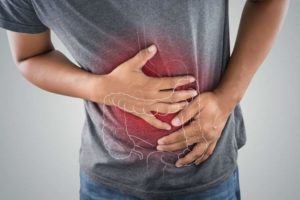Digestive system disorders are very broad and very treatable with acupuncture. Here are some, but not all, of the symptoms known to respond well to acupuncture. Bloating, diarrhea, constipation, Irritable Bowel Syndrome, Functional Dysbiosis, spasms, and general digestive system weakness. How does this work? In a nutshell, acupuncture reduces inflammation, and repairs and protects the gastrointestinal system. (1 )

Dysfunctional gastrointestinal tract disorders are not discrete, but overlap in symptoms and causes. The following study is about Functional Dysbiosa but covers a wide range of symptoms including those for IBS, that were alleviated by acupuncture. “The cumulative evidence demonstrated that acupuncture is a promising treatment to alleviate symptoms of Functional Dysbiosis patients. Acupuncture, a non-invasive strategy for nerve stimulation, may have the potential to control intestinal inflammation and suppress acid secretion via different somatic autonomic reflex pathways, regulate the brain-gut axis through intestinal microbiota, and has the potential to ameliorate Functional Dysbiosis symptoms.” (2)
Achalasia occurs when nerves in the esophagus become damaged. Achalasia is a neurogenic esophageal motility disorder characterized by impaired esophageal peristalsis and a lack of lower esophageal sphincter relaxation during swallowing. It is a rare disorder that makes it difficult for food and liquid to pass from the swallowing tube connecting your mouth and stomach (esophagus) into your stomach.
If you have Achalasia, you may like to consider Neuropuncture. Electroacupuncture can be used to neuroregulate the CNS/autonomic nervous system to reestablish control of the esophagus. This is achieved by stimulating the vagus and spinal segmental nerves that innovate the oesophagus.
